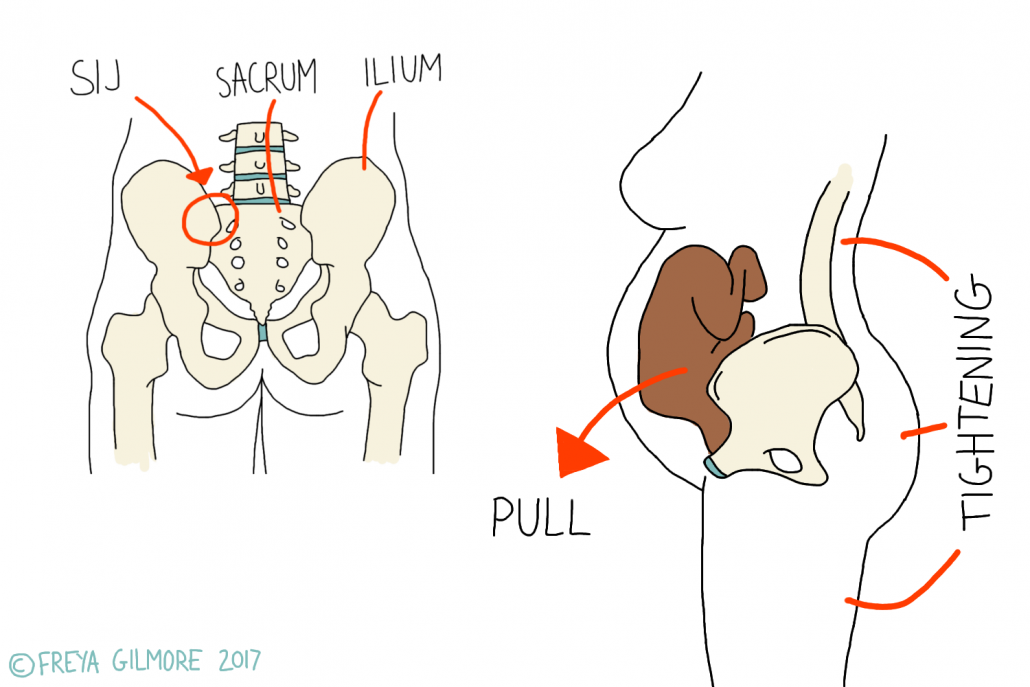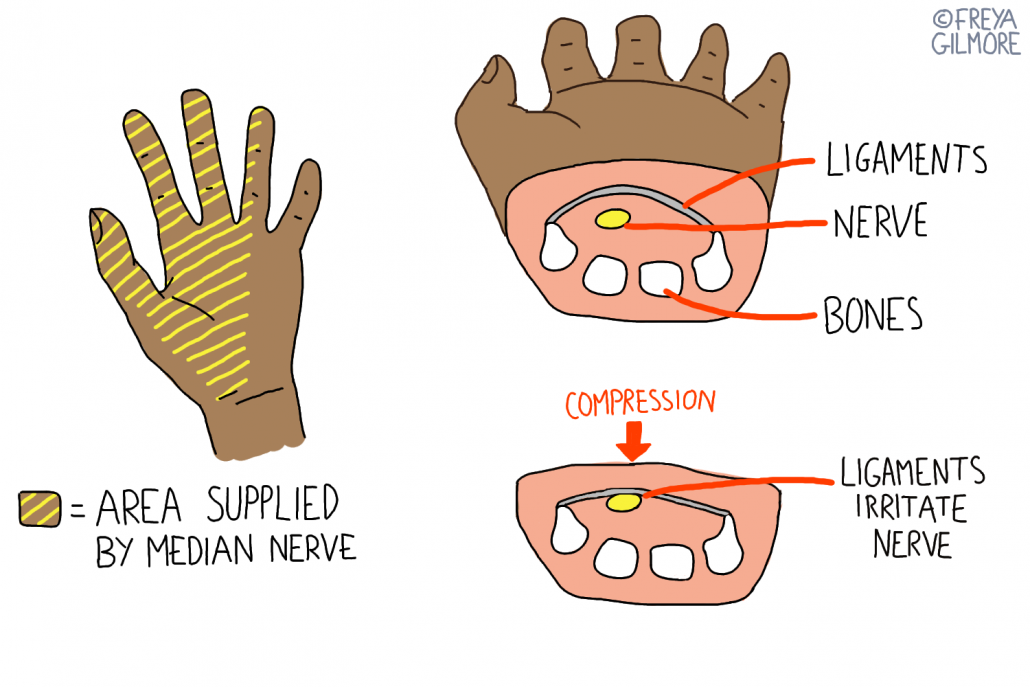Pregnancy can come with an array of uncomfortable symptoms. Most minor aches and pains will resolve at birth, but our aim is to make them manageable in the meantime.

Lower Back Pain
One of the most common complaints during pregnancy is lower back pain. From the beginning of the first trimester, hormones are already circulating to increase mobility of the pelvis, in preparation for labour. This can cause lower back pain early on, or it can predispose a mother-to-be to pain as the bump grows. We often see the small of the back become more pronounced as the body compensates for the change in centre of gravity. This shift combined with laxity throughout the pelvis can lead to a persistent ache.
One joint often affected is the sacroiliac joint (SIJ). This joint needs to become more mobile than normal to allow for movement in labour as the baby passes through the birth canal. SIJ pain can present as a dull ache with sharp moments when aggravated. Often gentle movement is relieving, but simple things like going from sitting to standing or rolling over in bed can be painful. It is also worth noting that pain is not always local to the joint- it can refer down the legs and be mistaken for sciatica.
Your osteopath can diagnose the cause of your pain and treat it accordingly.
Sciatica
The postural changes are not just limited to the lower back. The muscles of the buttock and hamstrings may need to work harder to counteract the weight of the bump too. For some people this might present as a bit of tightness and achiness. For others, the pull of the muscles on the pelvis may aggravate any lower back pain. In some cases, tightness in the deep muscles of the buttock can irritate the sciatic nerve and cause sciatica. When the cause of sciatica is the piriformis muscle in the buttock, it is known as piriformis syndrome.
Like other causes of sciatica, symptoms can occur anywhere from the buttock to the foot. These may include a shooting pain, numbness, or weakness. True piriformis syndrome is relatively easy to manage, as symptomatic relief for the nerve combined with relaxation of the muscle should remove the stimuli. When the muscle is tight to counterbalance a baby bump, it might take frequent exercise or treatment to manage, but should generally have a good prognosis.
Carpal Tunnel Syndrome in Pregnancy
The hormone referenced as a factor in back pain has wide reaching effects. Its name is relaxin, and on top of causing pelvic ligaments to loosen, it affects blood vessels too. Put simply, this is what is to blame for water retention in pregnancy. In turn, water retention can cause carpal tunnel syndrome.

The increased “puffiness” in the tissues of the wrist applies pressure on the nerve. This causes the irritation that might otherwise be caused by pressure from a desk while typing. We expect fluid retention to resolve on its own soon after birth, but in the meantime we want to minimise your symptoms. Local treatment to encourage the fluid to move on can give some temporary relief. We can also give advice for exercises and other management strategies: for example it may be beneficial to wear a wrist support overnight. This is because we tend to curl up in the night, and flexing the wrists only adds to the pressure. A simple splint to hold the wrist in a neutral position can make a big difference overnight.
Book an appointment now to address your pregnancy-related aches and pains.

